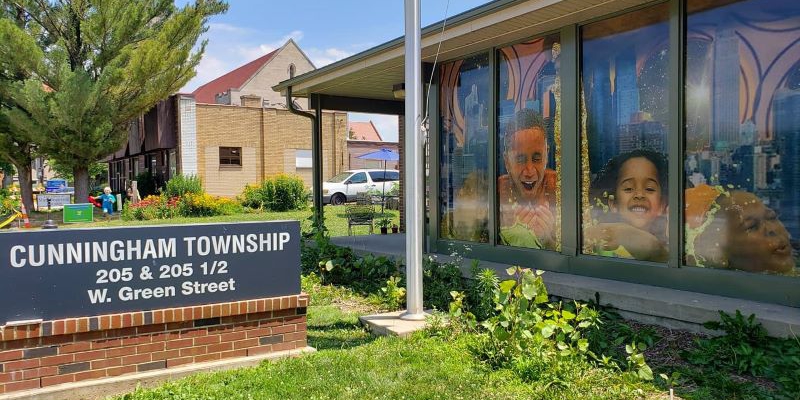The housing problems facing Champaign-Urbana residents are nothing short of a crisis. For renters in particular, the price of living in our community is out of control. While landlords and owners may blame inflation, even a cursory review of the rent increases that tenants have shouldered far surpasses the rate of inflation. According to The Washington Post, since 2019, average rents in Champaign County have increased more than 12%.
While renters are experiencing pronounced hardship in the present, these recent developments are merely the tip of the iceberg. The burgeoning renters’ crisis is structural, not a product of recent years or transient circumstances. For-profit housing is exploitative and expensive by design. A so-called free-market cannot adequately meet our societal need for housing; both defenders and detractors of this system should acknowledge this fact. Privatized and profit-motivated housing means that after paying for the property’s necessary expenses, excess revenue has to be collected by an owner — at the occupant’s expense through rent — to make ownership of a rental property a meaningful investment for landlords. This is antithetical to the needs of renters, as renters will always shoulder the ever-growing financial burdens of maintaining the property and fulfilling the profit-incentive of this housing structure.
So, if the struggle renters are engaged in now is so pernicious, what can we do? I see four pressing actions that would immediately offer the critical aid renters need.
First, we must drastically grow the housing supply in C-U. Supply is a critical element to for-profit housing, and when there is scarcity, renters suffer. Landlords line their pockets with unfairly high rents when residents are competing for a limited number of units. The state of Illinois, Champaign County, as well as the cities of Champaign and Urbana, have an obligation to increase their funding commitments to the public, non-market alternatives to housing; those housing options which protect the most vulnerable from the artificially high rents. Unlike for-profit housing, public housing only needs enough revenue to keep the lights on; it doesn’t need a profit.
Second, the community land trust (CLT) model of housing must be embraced by governments and non-profits in the area. CLTs are an excellent alternative to the traditional capitalist owner-tenant form of private housing. CLTs own housing permanently while capping rents and eliminating the profit motive. There is no individual owner, instead there is a democratized group of elected representatives comprised of occupants and community members that make operational decisions on behalf of the interests of tenants. Ushering in strong CLT housing options would not only help renters escape ever-increasing rents, but actually transition towards home ownership.
Third, state legislators need to repeal the Illinois preemption on rent control. It is a disgrace to the millions of renters in our state that Illinois bans all forms of government rent controls, which could substantially limit landlords’ ability to endlessly raise rents. States like Oregon not only have statewide rent caps that landlords cannot exceed, but also allow local governments to implement their own rent controls to ensure that regional needs are met. Illinois should at the very least remove the preemptive ban on local governments like Champaign and Urbana from passing rent controls, so local leadership can step in on behalf of renters, putting basic restrictions on rental companies’ ability to transfer the wealth of the many into the hands of the few.
Finally, township governments must take a leading role in protecting the rights of renters. Because of the lacking social safety nets at both the federal and state levels, which tragically leave so many of our fellow neighbors behind, township governments are often the last hope for support for those needing it most. That’s why it’s essential for township governments to enact bold, progressive, forward-thinking policies.
In 2020, the Cunningham Township supervisor’s office supported a referendum that sought to expand the tax base and subsequently increase funding for their social support programs, including renters’ funding. Their referendum passed, and since then, their office has provided record levels of assistance to renters in dire need. This is a first step toward township government realizing their appropriate role in providing critical financial assistance to renters in our community.
Township governments should be working to grow their budgets through progressive taxation — ensuring proportional tax obligations so those with the most, such as big landlords, pay their fair share into these important support funds, while ensuring average homeowners are spared from increased tax obligations. Townships must also prioritize rental assistance funding at this critical moment for the well-being of C-U renters. I implore the City of Champaign Township office, as well as the Cunningham Township office, to continue growing their budgets through securing new grant funding as well as progressive taxation to provide financial help to the most vulnerable in our community.
What is abundantly clear to those of us paying the continually rising cost of rent in C-U is that a free-market, profit-based housing scheme is not a sufficient way to house people. We need intervention to ensure that we can increase the non-market housing supply, democratize housing, implement rent controls to rein in the profiteering of corporate landlords, as well as provide critical financial assistance to those needing it most. Renters deserve this help, and they need it now.
Grant is a lifelong Champaign County resident. He holds a bachelor’s degree in political science from Illinois State University and closely follows current events.








